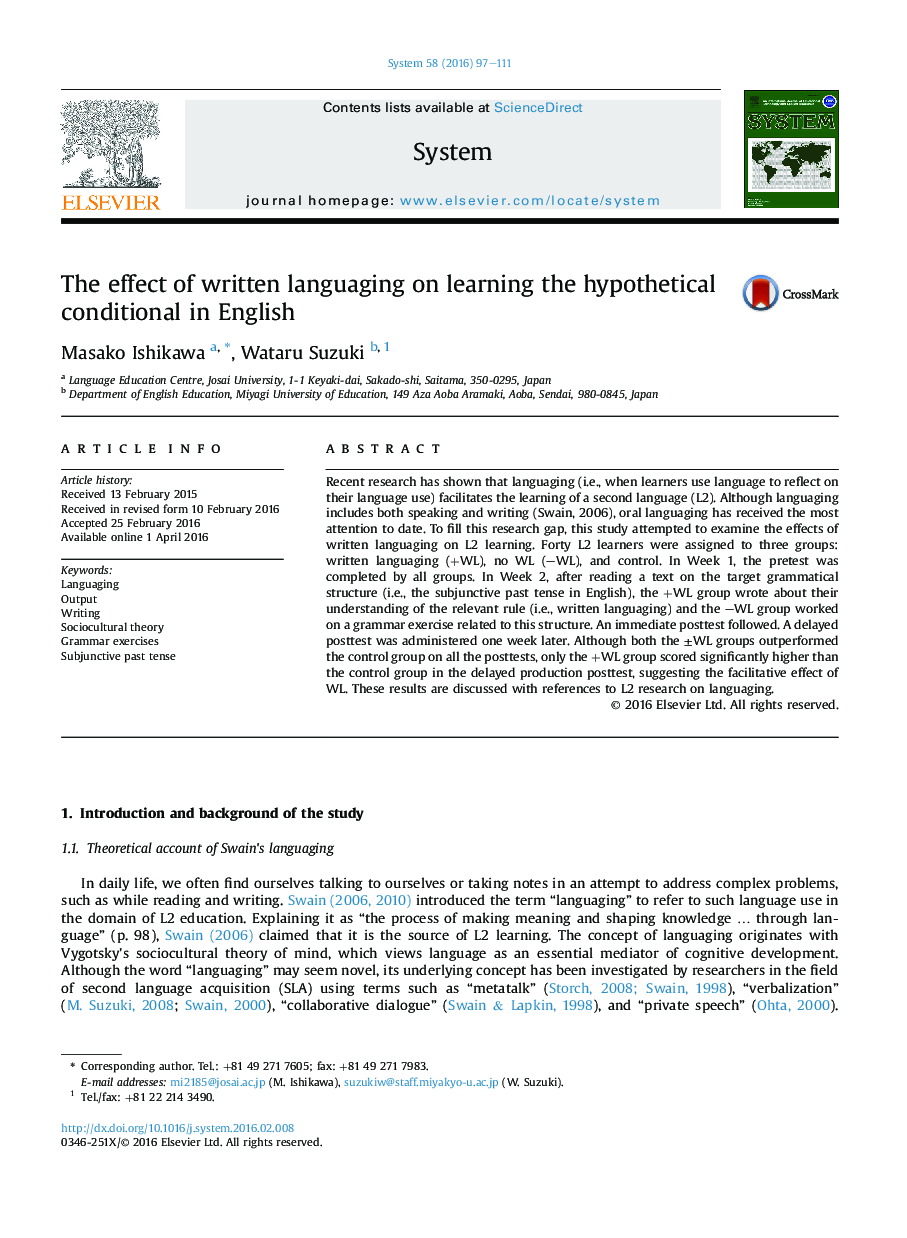| Article ID | Journal | Published Year | Pages | File Type |
|---|---|---|---|---|
| 372996 | System | 2016 | 15 Pages |
Recent research has shown that languaging (i.e., when learners use language to reflect on their language use) facilitates the learning of a second language (L2). Although languaging includes both speaking and writing (Swain, 2006), oral languaging has received the most attention to date. To fill this research gap, this study attempted to examine the effects of written languaging on L2 learning. Forty L2 learners were assigned to three groups: written languaging (+WL), no WL (–WL), and control. In Week 1, the pretest was completed by all groups. In Week 2, after reading a text on the target grammatical structure (i.e., the subjunctive past tense in English), the +WL group wrote about their understanding of the relevant rule (i.e., written languaging) and the –WL group worked on a grammar exercise related to this structure. An immediate posttest followed. A delayed posttest was administered one week later. Although both the ±WL groups outperformed the control group on all the posttests, only the +WL group scored significantly higher than the control group in the delayed production posttest, suggesting the facilitative effect of WL. These results are discussed with references to L2 research on languaging.
